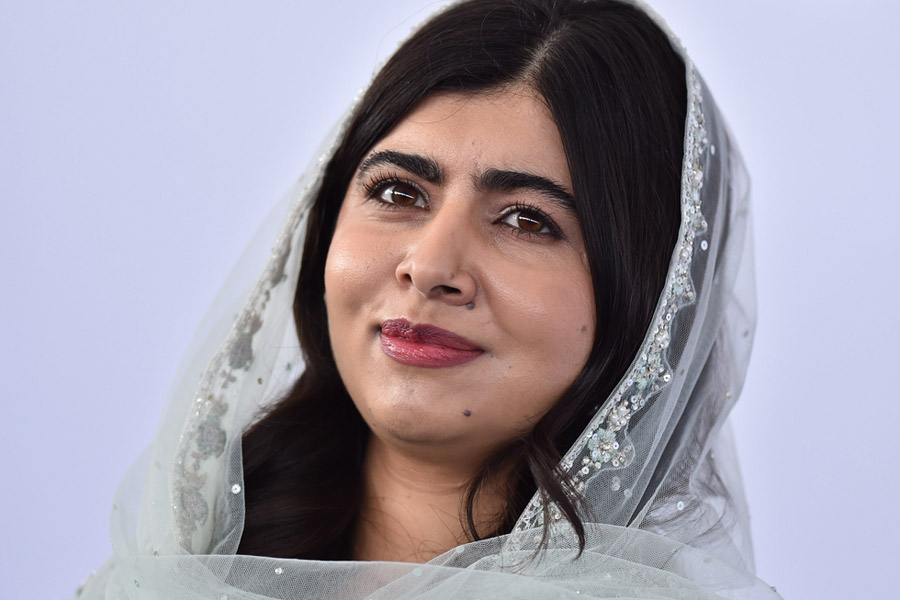Likening the restrictions imposed by the Taliban on women in Afghanistan to the treatment of Black people under apartheid in South Africa, Nobel Laureate Malala Yousafzai has urged the international community to make "gender apartheid" a crime against humanity.
Yousafzai, who was awarded the Nobel Peace Prize in 2014 when she was 17 for her fight for girls' education in Pakistan, was the speaker at the 21st edition of the annual Nelson Mandela Lecture here on Tuesday.
At the event, international thought leaders share their views each year on the death anniversary of the global icon who became South Africa’s first democratically-elected president after serving 27 years as a political prisoner under the white minority apartheid government.
“The theme for this year is ‘Leading for a just future’,” said the chairperson of the Nelson Mandela Foundation Board, Prof Njabulo Ndebele.
In her address, Yousafzai, now 26, said that the Taliban regime in Afghanistan was enforcing "gender apartheid" by denying girls and women the right to education and work.
In the same way that whites in South Africa believed that it was in the natural order of things to separate Blacks, in Afghanistan, the Taliban say that oppressing girls and women is a matter of religion, she said.
“So let me say this as plainly as possible – that is only an excuse but it is also not true," Yousafzai, who miraculously survived an assassination attempt by the Pakistani Taliban in October 2012, said.
Many Muslim scholars, including those from Afghanistan, have made clear that Islam does not condone denying girls and women the right to education and to work, she said.
“If we as the world accept the Taliban’s (80+) edicts on girls and women, we are sending a message everywhere that they are less human. That their rights are up for debate. That we are willing to look away,” she said.
Yousafzai, the youngest Nobel laureate, said apartheid was more than just a description.
“It is a legal concept. South Africans fought for racial apartheid to be recognised and criminalised at the international level. In the process, they drew more of the world’s attention to the horrors of apartheid. By defining systemic oppression in legal terms, they named it and made it easier to enlist allies against it,” she said.
But gender apartheid has not been explicitly codified yet, so Yousafzai called on every government in every country to make gender apartheid a crime against humanity.
“We have an opportunity to do that right now. The UN is currently drafting and debating a new Crimes Against Humanity treaty. This is the moment for world leaders to stand with Afghan girls and women. Adding and adapting language on gender apartheid to the treaty will codify it under international law,” Yousafzai said, adding that South Africa could play an important role in the process.
“This legal approach might seem disconnected from everyday life and human suffering, but the international law is not an obstruction – it is a practical tool," she said.
She said this would hold the Taliban to account and render anyone who helps them legally complicit.
“As we saw with South Africa, it can spur and strengthen collective action. Codification will stop gender apartheid from happening elsewhere. Human rights activists have a big role to play in building public pressure (to achieve this),” Yousafzai said.
Thanking Mandela’s widow Graca Machel for always speaking out for women and young people, Yousafzai said that the world has turned its back on the Afghan people.
“Maybe this reflects the sheer number of crises the world is facing. So much of humanity is wounded, but we cannot allow ourselves to buy into this false notion that we can only care about one crisis at a time. We must be able to hold space for suffering wherever it is happening in the world,” she said.
Except for the headline, this story has not been edited by The Telegraph Online staff and has been published from a syndicated feed.










